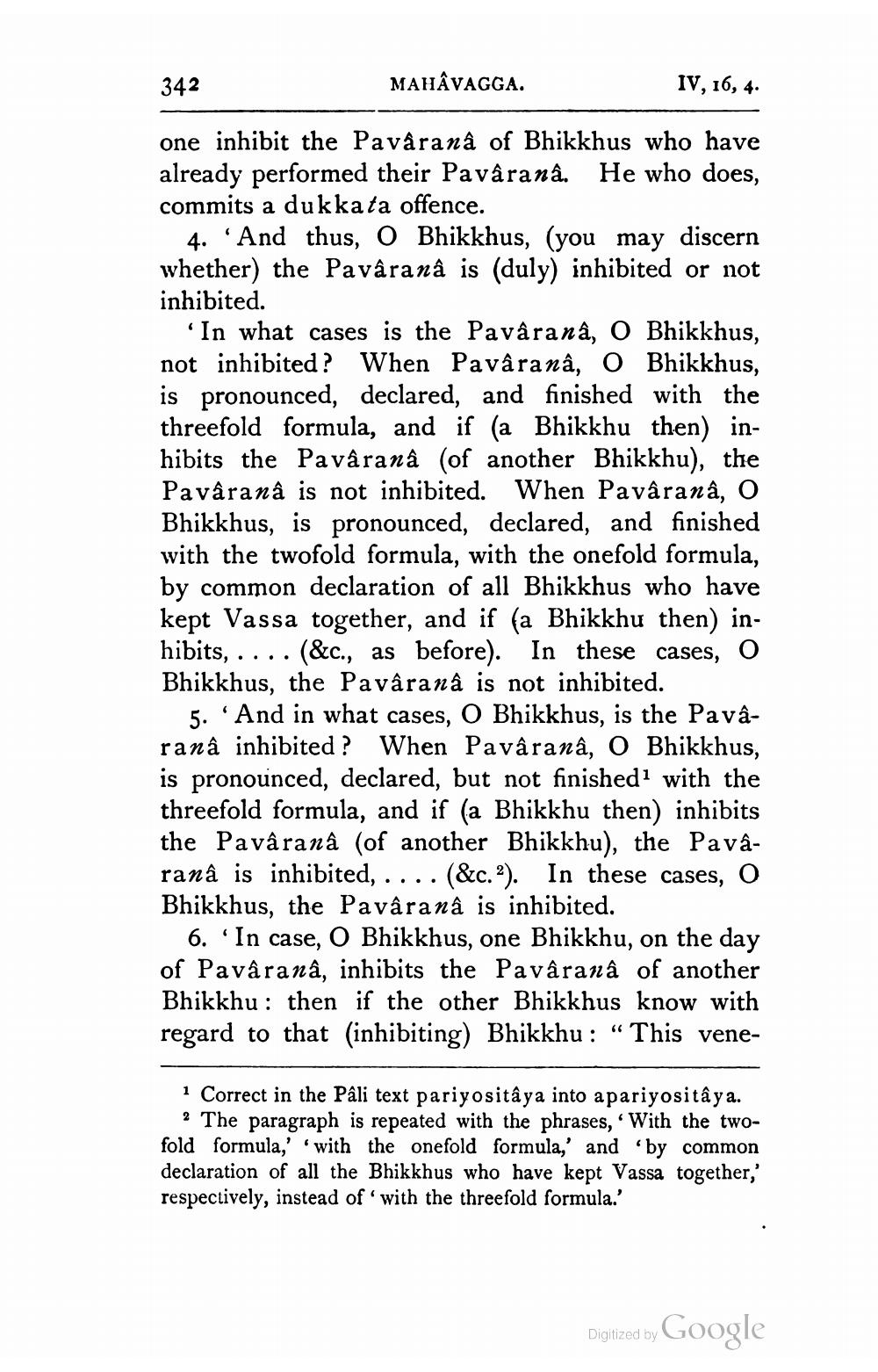________________
342
MAHÂVAGGA.
IV, 16, 4.
one inhibit the Pavarank of Bhikkhus who have already performed their Pavâranâ. He who does, commits a dukkata offence.
4. 'And thus, O Bhikkhus, (you may discern whether) the Pavâranâ is (duly) inhibited or not inhibited.
'In what cases is the Pavâranâ, O Bhikkhus, not inhibited? When Pavâranâ, O Bhikkhus, is pronounced, declared, and finished with the threefold formula, and if (a Bhikkhu then) inhibits the Pavâranâ (of another Bhikkhu), the Pavârana is not inhibited. When Pavâranâ, O Bhikkhus, is pronounced, declared, and finished with the twofold formula, with the onefold formula, by common declaration of all Bhikkhus who have kept Vassa together, and if (a Bhikkhu then) inhibits, .... (&c., as before). In these cases, O Bhikkhus, the Pavâranâ is not inhibited.
5. 'And in what cases, O Bhikkhus, is the Pavâranâ inhibited ? When Pavâranâ, O Bhikkhus, is pronounced, declared, but not finished with the threefold formula, and if (a Bhikkhu then) inhibits the Pavâranâ (of another Bhikkhu), the Pavâranâ is inhibited, .... (&c.2). In these cases, O Bhikkhus, the Pavâranâ is inhibited.
6. `In case, O Bhikkhus, one Bhikkhu, on the day of Pavâranâ, inhibits the Pavâranâ of another Bhikkhu : then if the other Bhikkhus know with regard to that (inhibiting) Bhikkhu : “ This vene
1 Correct in the Pâli text pariyositâya into apariyositâya.
? The paragraph is repeated with the phrases, ' With the twofold formula,' with the onefold formula,' and 'by common declaration of all the Bhikkhus who have kept Vassa together, respectively, instead of with the threefold formula.'
Digitized by Google
Digitized by




